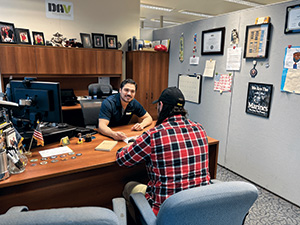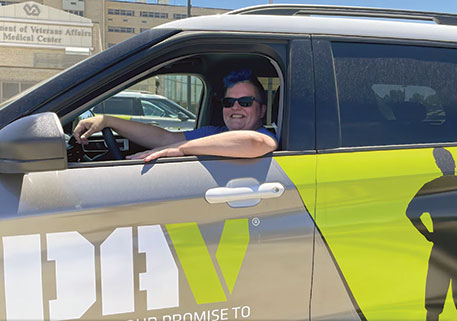 Each year, more than 200,000 American service members transition back to civilian life. Making that profound change requires support and resources for every newly minted veteran.
Each year, more than 200,000 American service members transition back to civilian life. Making that profound change requires support and resources for every newly minted veteran.
But in a congressional hearing in October 2023, lawmakers said those making the transformation require more than they currently receive.
“Success after service will look different for every service member,” said Sen. Jerry Moran of Kansas, the ranking member of the Senate Veterans’ Affairs Committee. “That is why we must make certain that veterans are equipped with the knowledge and resources they need to thrive.
“That knowledge and resource needs to come earlier than the day in which they leave active service.”
The Department of Defense is legally required to begin service members’ transition process at least one year before each respective troop leaves the military. Participation in the Pentagon’s Transition Assistance Program (TAP) is correlated with a higher application rate for Department of Veterans Affairs benefits, said VA Under Secretary for Benefits Joshua Jacobs. He stressed that the department contacts veterans three times in their first year after transitioning back to civilian life.
However, the process could be better and requires organizations, including DAV, to step in to fill critical gaps for ill and injured veterans. Jacobs added that introduction to accredited veterans service organizations will be added to the TAP curriculum.
In addition to having benefits advocates in all 50 states, DAV employs a corps of transition service officers whose mission is to ease the burden of exiting military service.
“Our transition service officers offer VA benefits counseling and assistance to any service member at military installations around the country,” said DAV National Service Director Jim Marszalek. “By filing for compensation before separating from the military, our benefits experts can serve soon-to-be veterans more efficiently.”
DAV advocates in Washington, D.C., have a long history of championing legislative and policy changes to improve the lives of ill and injured veterans. To accomplish this, DAV follows the mandates outlined in resolutions submitted, voted on and adopted by its membership at the organization’s annual national convention. Several resolutions focus on transitioning veterans, including offering better mental health support.
“When our members come together, nothing stops them from pushing Congress to better support those who served—that includes transitioning veterans,” said DAV National Legislative Director Joy Ilem. “We applaud our lawmakers for their continued attention to this critical issue, and DAV stands ready to help ensure all service members have the tools they need to establish healthy and productive lives as civilians.”
Stay informed. Follow along with updates to legislation affecting veterans and their families by joining DAV CAN (Commander’s Action Network) at davcan.org.





